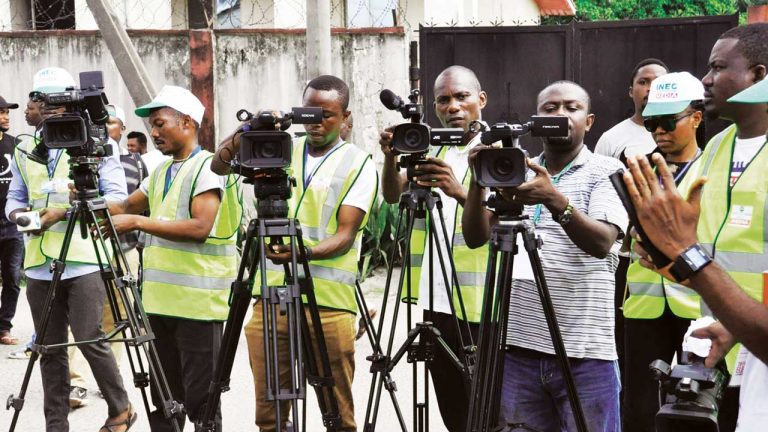
Africa and other developing continents have frequently been recipients of aid from developed continents in the north. Over the years, people, governments, and organizations in the global south have received massive amounts of money, material, and non-material support from a variety of sources, ranging from private to government donors or funders. With recent events, particularly in the socioeconomic and political advancements of countries in the global south, it is unclear whether donors and funders in the global north will quit donating and transferring expertise.
Foreign aid flows have remained unprecedented in recent years, especially in the areas of developing media capability and institutionalizing genuine accountability and governance processes, from Nigeria to Egypt and Kenya to South Africa. A recent information from the Nigeria’s Ministry of Budget and National Planning indicates that the country received significant amount of money from foreign governmental and non-governmental organisations such as “the European Development Fund (EDF), the United Nations Development Systems (UNDS), China through the Bilateral Agreement between the government of Nigeria and the People’s Republic of China signed in 1972 and Japan activities in Nigeria via the Japan International Cooperation Agency (JICA). The other donors included Korean International Cooperation Agency (KOICA), Department for International Development (DFID), the United States Agency for International Development (USAID) and the German International Cooperation (GIZ) between 2015 and 2020.” The information further indicates that a total of N26 billion foreign aid was received.
Though no specific sum for the media sector was indicated between 2015 and 2020, our analyst’s assessment of the donors or funders revealed that several of them had a history of aiding independent media across the country. For example, in 2018, the Nigerian Press Council held a workshop to strengthen the capacity of journalists to cover and report election affairs responsibly for national development during and after the electoral cycle, thanks to support from a foreign donor. In the same year, the European Union began training journalists for the 2019 general elections through its EU Support to Media Organizations programme. The International Press Centre and the Institute of Media and Society collaborated on the project, which was set to finish in 2019. The EU hopes that by intervening, the media, civil society organizations, government officials, and citizens would work together to co-learn and co-build a robust electoral process that leads to credible elections.
Register for Tekedia Mini-MBA edition 19 (Feb 9 – May 2, 2026): big discounts for early bird.
Tekedia AI in Business Masterclass opens registrations.
Join Tekedia Capital Syndicate and co-invest in great global startups.
Register for Tekedia AI Lab: From Technical Design to Deployment (next edition begins Jan 24 2026).
Our analyst discovered that another foreign organization funded $6.3 million in journalism and media to improve accountability and anti-corruption measures in Nigeria, which looks to be a complement to the EU’s efforts. The Nigerian Guide of Editors received $226,889 in capacity building funds from the United States of America Embassy in Lagos in 2021. The donor specifically wants the editors to be trained in the proper techniques for comprehending, appreciating, and carrying out their constitutionally mandated duty of holding government accountable to the people.
Ahead of the general elections in 2023, our checks reveal that foreign donors or funders have equally offered help to a number of organizations and media professionals, similar to the current pattern of financing and supporting media institutions and their staff. The European Centre for Electoral Support, for example, taught 30 journalists in Enugu State on election coverage before of the state council election. The International Fund for Public Interest Media has also stated its willingness to provide specific funds to encourage independent public interest media.
Is it more important to provide material support or to build capacity?
As previously stated, the donors or funders have provided particular financial, material, and non-material support (training and knowledge transfer) with varying impacts across the media kinds and establishments chosen. According to our analyst’s observations, media outlets who were given the option to participate in the intervention that offered reporting materials increased their production and dissemination of relevant political and electoral information to the general public. Various interventions have also benefited practitioners in terms of material and financial gain. Personal reporting and production tools have been provided to journalists. They have also had the option to receive financial assistance for modest expenses during trainings, conferences, and workshops.
Pushing Voters Here and There
In all of its consequences, our analyst observes that the media environment has not been the same as it was before to 1999. With fewer than nine months until the 2023 general elections, this piece urges concerned media stakeholders to redouble their efforts in covering the electoral cycle, focusing on being thorough in reporting issues and demands of citizens rather than simply monitoring political actors. Reporters, editors, and managers, according to our analyst, need to reintroduce the word “journal” into their reporting process. This is critical because a journalist is someone who has in-depth knowledge of a subject and wants someone who does not have that information to learn about it in a specific way.
The Independent National Electoral Commission’s media code of election coverage specifies that media should allow voters to make informed choices by giving information that enhances their knowledge of electoral processes, as part of its efforts to have credible media for elections. Our analyst expects news and program contents that allow citizens to examine previous states of socioeconomic and political issues and/or needs and connect with what will happen in the future, since media establishments and practitioners have been equipped with the right processes for reporting inclusive governance and electoral content. This will enable individuals make informed decisions during polls. Both news and programme contents should now be viewed as products rather than information or events without a thorough examination of the positive and negative effects of the information or events.



